16 Spices That Start With A (And How to Use Them Like a Pro)
Welcome to the Alphabetical Spice Zone, where we’re diving deep into one of the most aromatic letters in the spice rack: A. Whether you're a seasoned chef or someone who just realized that paprika isn’t just for coloring deviled eggs, this list will turn your kitchen into a flavor powerhouse.
Table of Contents
- Allspice
- Ajwain
- Anise
- Annatto
- Arrowroot
- Amchur (Amchoor)
- Andean Chili
- Asafetida
- Aleppo Pepper
- Algarum
- Achiote
- Acacia Gum / Gum Arabic
- Angelica Root
- Amaranth
- Arrabbiata
- Anardana
1. Allspice – The Flavor Impersonator
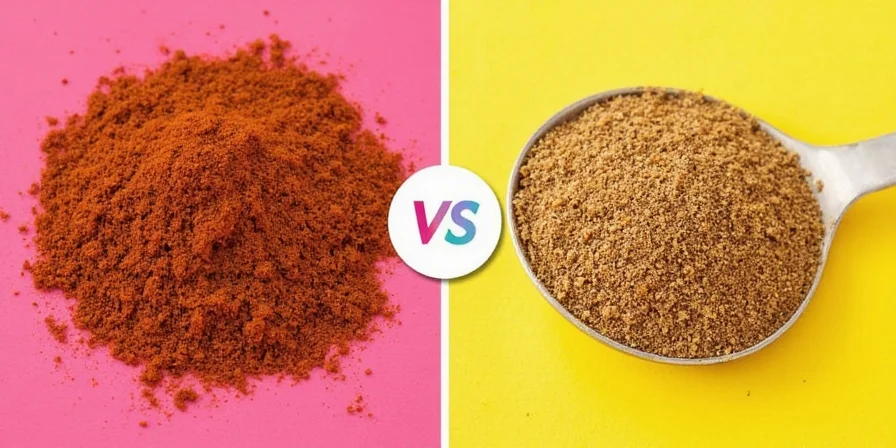
Allspice is like the Method actor of spices — it can mimic the flavors of cinnamon, nutmeg, and clove all at once. Found mostly in Jamaican jerk seasoning, it’s also a staple in pumpkin pie spice blends.
- Best For: Baking, marinades, stews
- Substitute: Equal parts cinnamon + nutmeg + a dash of cloves
- Pro Tip: Whole berries last longer than ground versions. Store them in an airtight container!
2. Ajwain – The Digestive Wonder
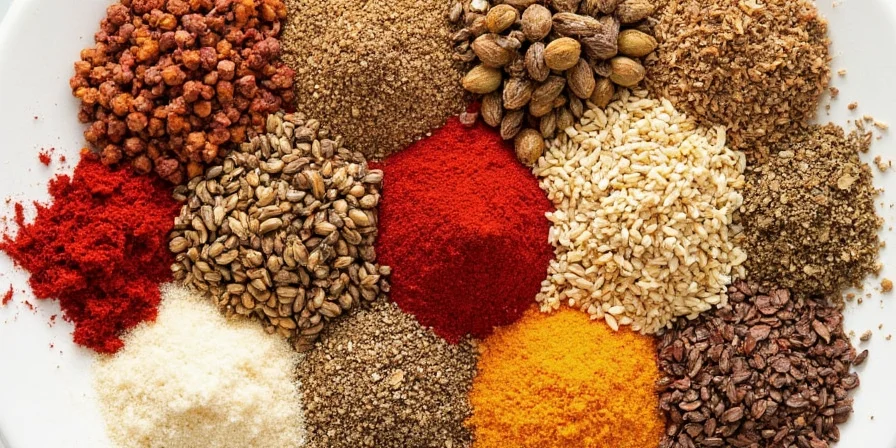
If your stomach could speak, it’d probably ask for ajwain. This Indian spice is known for its medicinal properties, especially helping with digestion and reducing bloating.
- Best For: Deep-fried snacks, parathas, herbal teas
- Flavor Profile: Earthy, thyme-like, slightly bitter
- Fun Fact: It’s sometimes called “bishop’s weed,” which makes zero sense until you try it in a curry.
3. Anise – The Licorice Whisperer
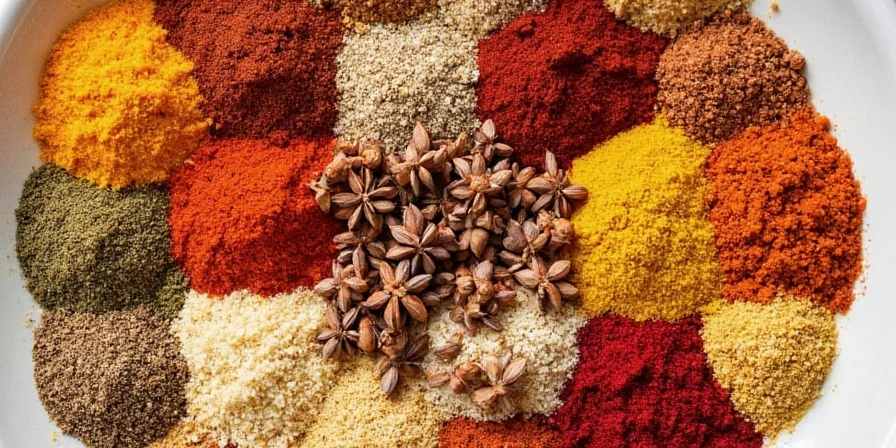
| Type | Taste | Common Use |
|---|---|---|
| Anise Seeds | Licorice, sweet | Breads, cookies, liqueurs |
| Star Anise | Mellow licorice | Pho, braised meats, mulled wine |
Yes, they’re different. Yes, people mix them up. No, you shouldn’t substitute them blindly. Keep these two separated unless you want to accidentally ruin your Pho game.
4. Annatto – The Natural Food Colorant
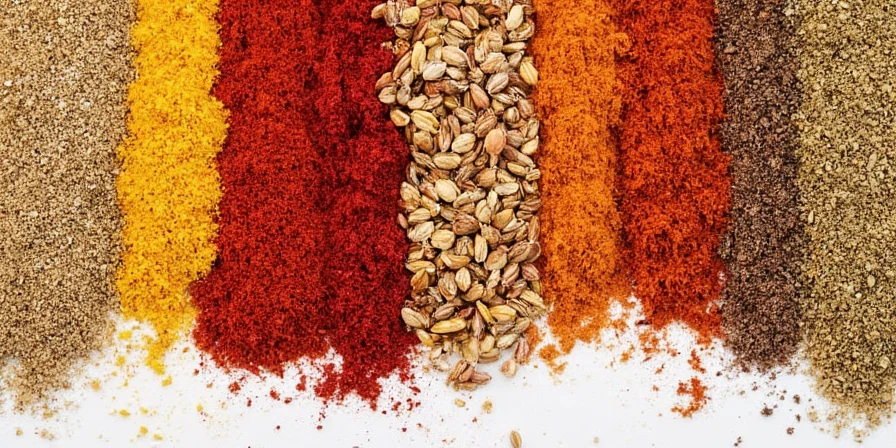
Want to make your rice look like it came from a Caribbean restaurant? Annatto’s your answer. Also known as achiote in some regions, this earthy spice adds both color and mild peppery warmth.
- Best For: Rice dishes, soups, tamales
- Tip: Toast annatto seeds in oil to release more flavor before discarding them.
5. Arrowroot – Thickener with Texture
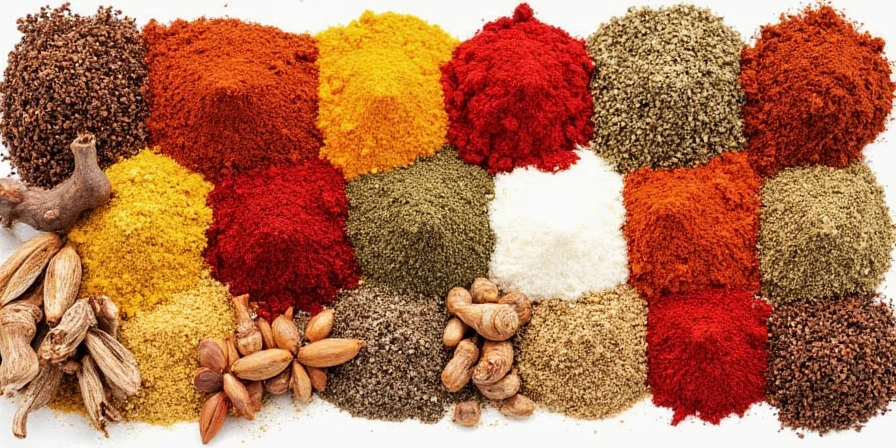
This starch may not smell like much, but it’s a powerhouse when it comes to thickening sauces without the chalky texture of cornstarch.
- Best For: Gluten-free baking, clear sauces
- Usage Tip: Mix with cold water first before adding to hot liquids to avoid clumps.
6. Amchur (Amchoor) – The Sour Savior
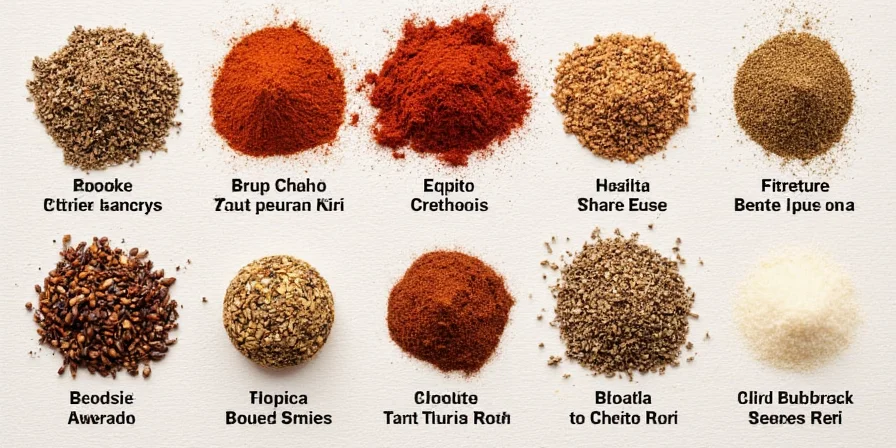
Dried mango powder might sound like a dessert topping, but amchur brings tangy depth to curries, chutneys, and dry vegetable dishes. Perfect when you want sourness without extra moisture.
- Best For: North Indian dishes, kebabs, chaats
- Pairing Tip: Try with cumin and coriander for instant masala magic.
7. Andean Chili – South American Heat
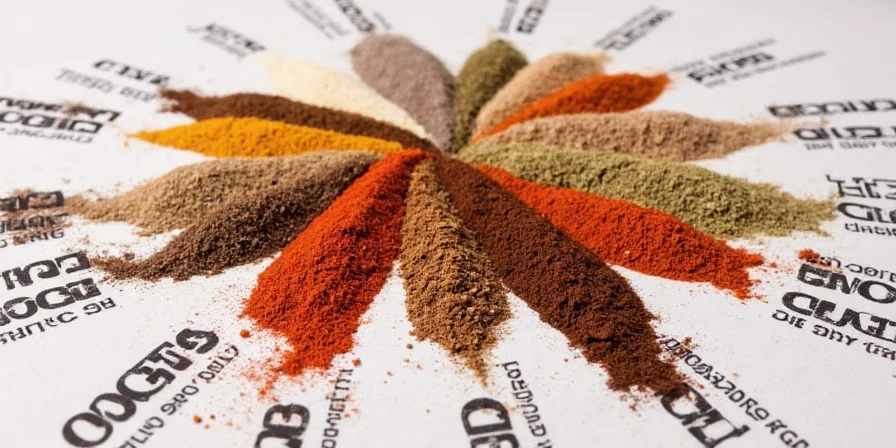
Hailing from the highlands of Peru, these chilies bring fruity heat to dishes. Think less fiery aggression and more complex, smoky-sweet warmth.
- Best For: Peruvian ceviche, grilled meats
- Heat Level: Medium-high
8. Asafetida – The Ghost Spice
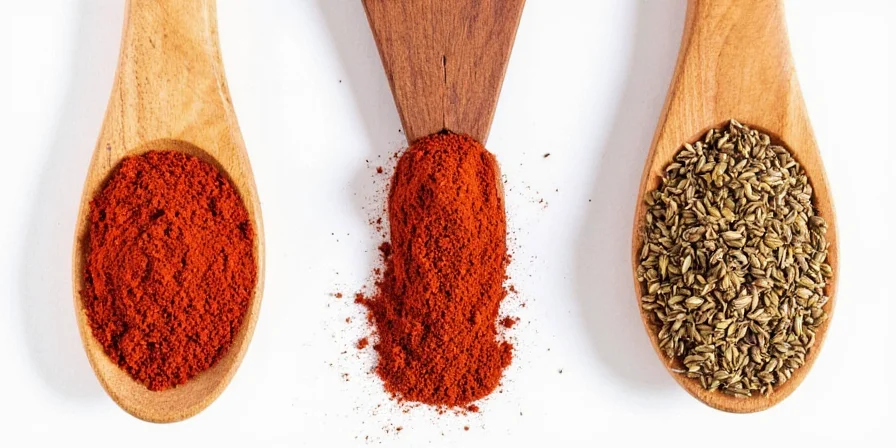
Also known as hing, this funky-smelling resin transforms when tempered in oil — releasing a savory, umami-rich aroma that mimics garlic-once-removed.
- Best For: Lentil dishes, pickles, fasting meals
- Pro Tip: A little goes a long way! Seriously. Half a teaspoon can haunt your pantry for weeks.
9. Aleppo Pepper – The Middle Eastern Star
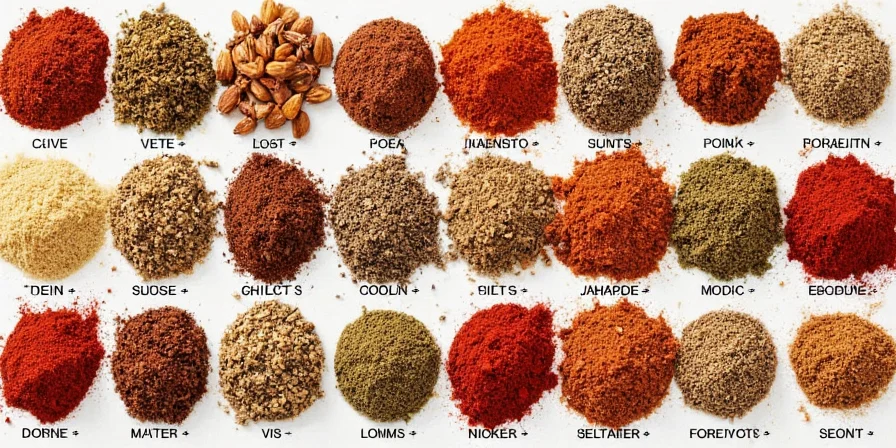
Smokey, moderately spicy, and slightly fruity — this chili is the backbone of many Levantine dishes. Once banned in the U.S., it’s now making a comeback due to quality imports.
- Best For: Grilled veggies, dips, shakshuka
- Flavor Note: Often described as a fusion between cayenne and sun-dried tomatoes.
10. Algarum – Ancient Umami Bomb
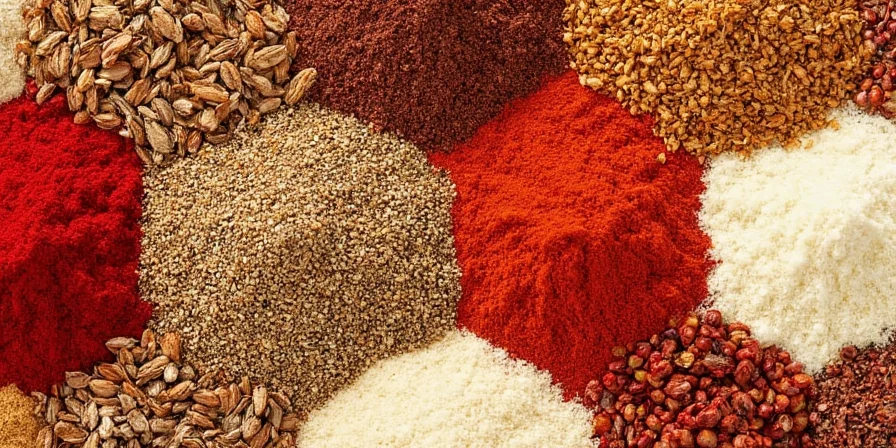
The original fish sauce used by Romans, algarum was the ketchup of antiquity — fermented, funky, and full of umami. Though largely historical today, modern interpretations are gaining popularity among food historians.
- Best For: Historical recreations, experimental cooking
- Modern Substitute: Use fish sauce or Worcestershire in small amounts.
11. Achiote – The Sun in a Seed
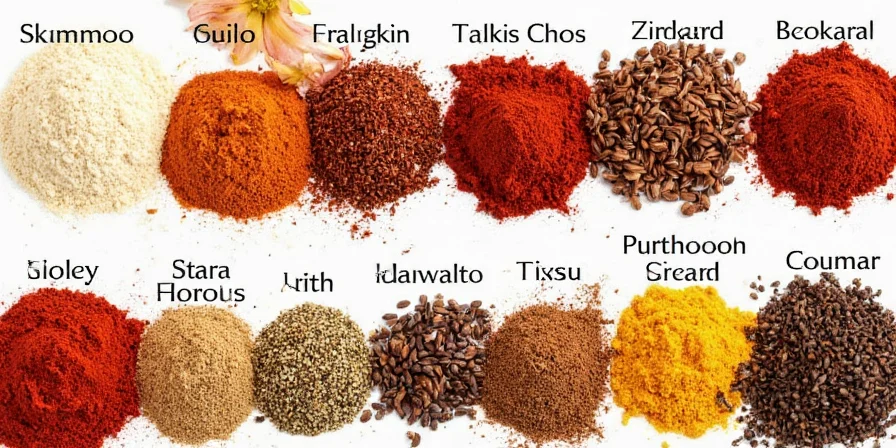
You’ve seen it — that bright orange-red paste on Yucatán tacos. Achiote brings both bold color and earthy sweetness to marinades and stews.
- Best For: Cochinita pibil, rice, soups
- Flavor Tip: Toast the seeds before grinding for deeper flavor notes.
12. Acacia Gum / Gum Arabic – The Unsung Hero
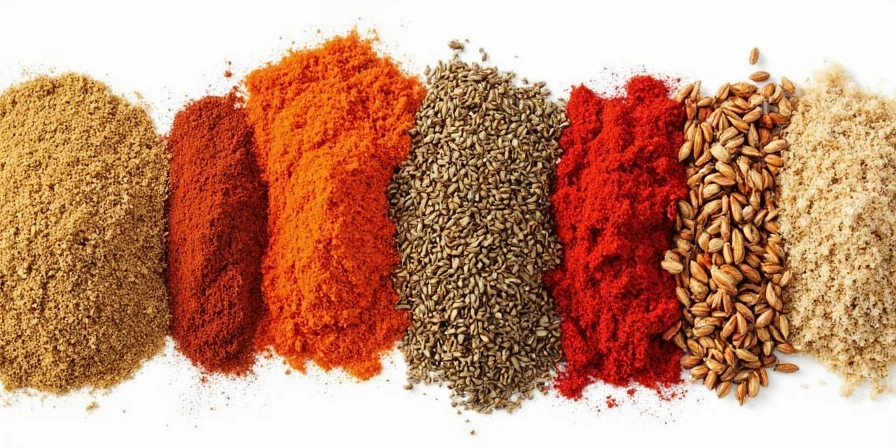
This natural tree resin is more than a binder — it’s a secret ingredient in ice cream, soft drinks, and even cosmetics. Technically not a spice, but often found in spice-related formulations.
- Best For: Beverage stabilization, gluten-free baking
- Interesting Use: Helps prevent sugar crystallization in candies.
13. Angelica Root – The Forgotten Herb
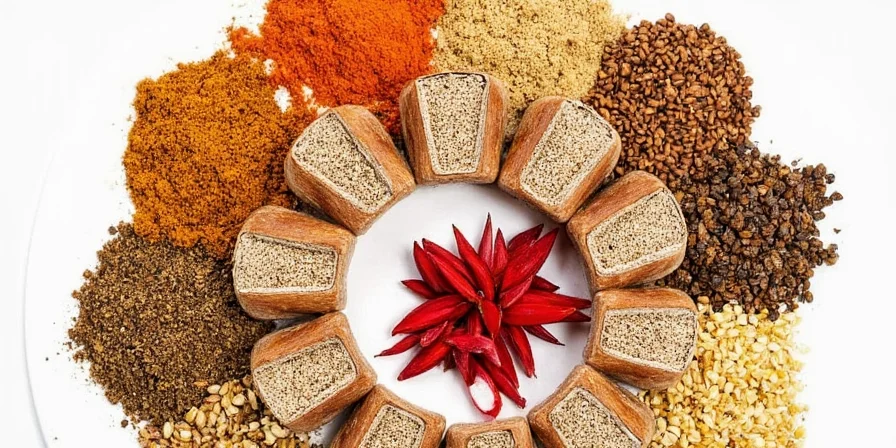
Used in Scandinavian desserts and traditional Chinese medicine, angelica root has a celery-like aroma with hints of juniper. It’s rare but worth seeking out for adventurous cooks.
- Best For: Liqueurs, herbal infusions, Nordic pastries
- Chef’s Note: Rehydrate dried roots before using to maximize flavor release.
14. Amaranth – Grain or Spice?
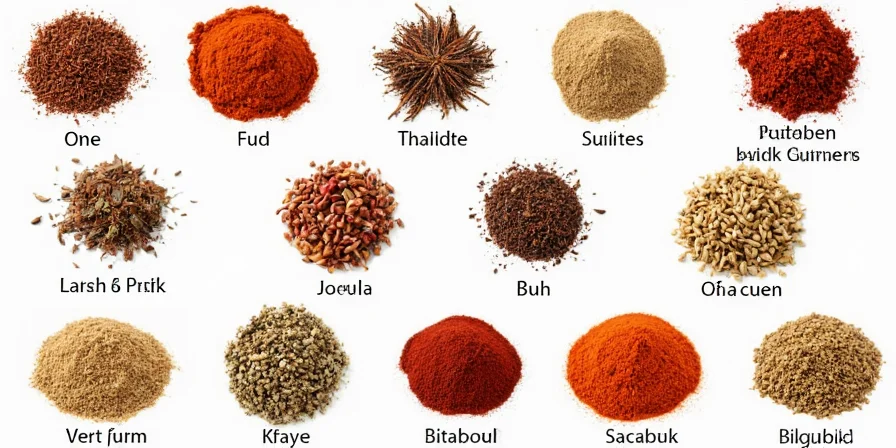
Technically a pseudo-cereal, amaranth can be popped like popcorn or ground into flour. In ancient times, it was considered sacred and reserved for rituals.
- Best For: Breakfast porridge, gluten-free mixes, energy bars
- Nutrition Bonus: High in protein, calcium, and fiber — a true superfood before the term existed.
15. Arrabbiata – Angry Pasta Spice
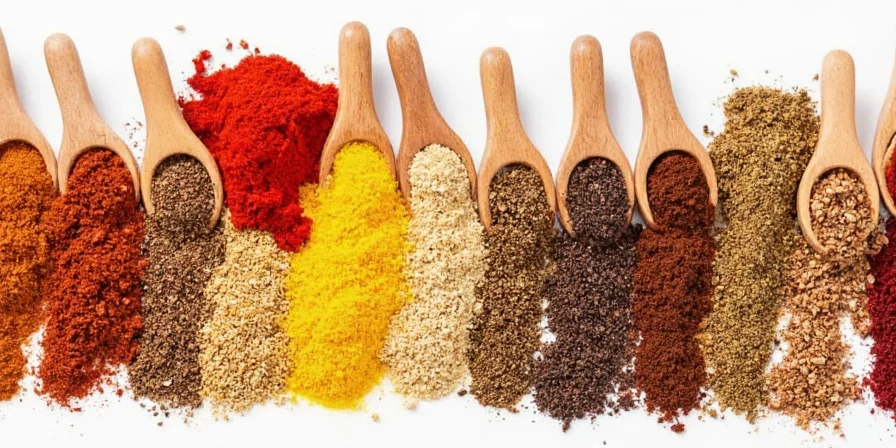
Translated as “angry” in Italian, this fiery blend usually contains crushed red pepper flakes, garlic, salt, and oregano. Its primary role? To wake up your taste buds in pasta dishes.
- Best For: Pasta sauces, meat rubs, roasted vegetables
- DIY Hack: Make your own by mixing dried chilies, garlic powder, salt, and herbs.
16. Anardana – Pomegranate Powerhouse
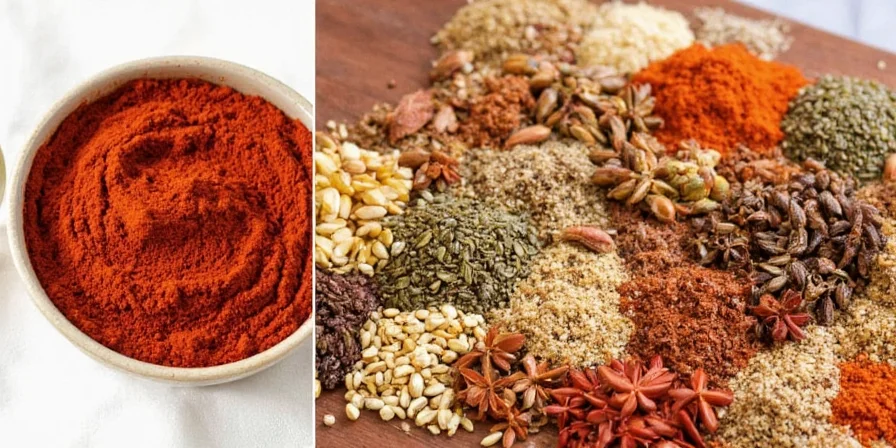
These dried pomegranate seeds pack a punch of tart flavor. Used in Indian and Middle Eastern cuisine, they add acidity without moisture — perfect for dry dishes like kebabs and raitas.
- Best For: Dry curries, chutneys, yogurt-based sauces
- Storage Tip: Crush gently before use; soaking softens the tartness.
Summary Table: Alphabetical Spice Comparison
| Spice | Flavor Profile | Main Use | Substitutes |
|---|---|---|---|
| Allspice | Warm, cinnamon-clove-nutmeg combo | Marinades, baking, Caribbean dishes | Cinnamon + nutmeg + clove |
| Ajwain | Thyme-like, sharp, digestive | Indian snacks, breads, tea | Fennel seeds (milder) |
| Anise | Licorice, sweet | Desserts, liqueurs, soups | Star anise, fennel |
| Annatto | Earthy, peppery | Rice, meats, sauces | Paprika (color only) |
| Arrowroot | Neutral | Thickening, GF baking | Cornstarch, tapioca |
| Amchur | Sour, fruity | Curries, chaats, dry dishes | Lemon juice or tamarind |
| Andean Chili | Fruity, smoky, medium heat | South American cuisine | Guajillo or pasilla |
| Asafetida | Garlicky, umami | Lentils, fasting dishes | Garlic powder (not exact) |
| Aleppo Pepper | Fruity, smoky, moderate heat | Grilling, dips, mezze | Crushed red pepper + paprika |
| Algarum | Salty, fermented | Historical recipes | Fish sauce, soy sauce |
| Achiote | Earthly, sweet, nutty | Latin American cuisine | Paprika (for color only) |
| Acacia Gum | Neutral | Binding, stabilizing | Xanthan gum |
| Angelica Root | Herbal, juniper-like | Liqueurs, Nordic baking | Fennel or celery seed |
| Amaranth | Nutty, neutral | Porridges, GF mixes | Quinoa or buckwheat |
| Arrabiata | Spicy, garlicky | Pasta, tomato sauces | Crushed red pepper |
| Anardana | Tart, acidic | Dry curries, chutneys | Lime zest or sumac |
Conclusion
There you have it — 16 flavorful spices starting with the letter A, each with its own personality, history, and culinary superpower. From the warm embrace of allspice to the fiery bite of arrabiata, these ingredients prove that the spice rack is more than just storage — it's a global passport in disguise.
So next time you’re staring into the pantry wondering what to spice up, don’t overlook the A’s. Your dishes — and your guests — will thank you for the adventure.
Got a favorite spice starting with A that didn’t make the list? Let us know in the comments — or better yet, drop a photo of how you use it in your kitchen!

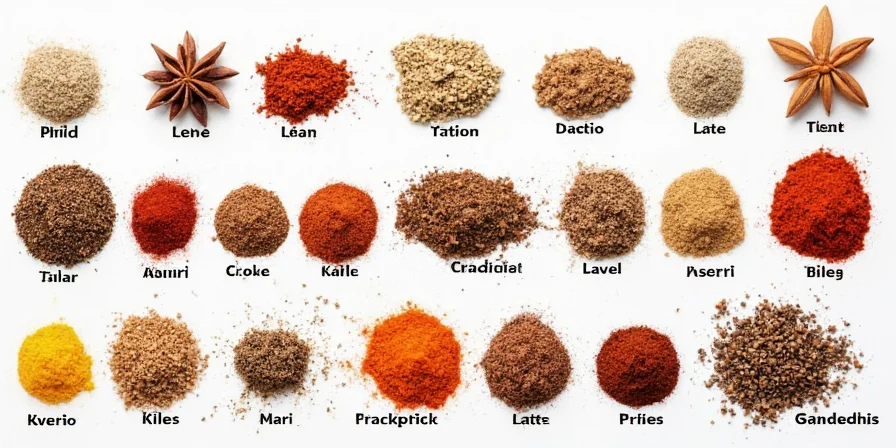









 浙公网安备
33010002000092号
浙公网安备
33010002000092号 浙B2-20120091-4
浙B2-20120091-4